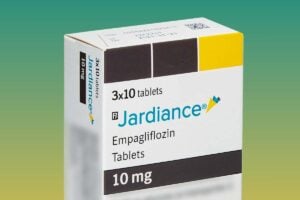A study from the University of Houston College of Pharmacy, published in the Journal of the American Geriatrics Society, has evaluated the risk of overactive bladder (OAB) as a side effect of cholinesterase inhibitor (ChEI) drugs taken for dementia and Alzheimer’s disease. The research was based on the dissertation work of the study’s first author Prajakta Masurkar.
Dementia is a group of symptoms associated with a decline in memory, reasoning or other thinking skills. Alzheimer’s disease is the most common cause of dementia, accounting for 60% to 80% of cases.
ChEI drugs, including donepezil, galantamine and rivastigmine, increase communication between nerve cells to enhance cognition.
What they found
Using Medicare data, the study examined 524,975 adults (aged 65 and older) with dementia who used ChEIs (donepezil 80.72%, rivastigmine 16.41%, galantamine 2.87%).
“The study found that the risk of overactive bladder varies across individual ChEIs,” reports Rajender R. Aparasu, Mustafa and Sanober Lokhandwala Endowed Professor of Pharmacy and chair, Department of Pharmaceutical Health Outcomes and Policy.
“Using a national cohort of older adults with dementia, we also found that donepezil was associated with a 13% increased risk of OAB compared to rivastigmine, whereas there was no differential risk of OAB with galantamine and rivastigmine.”
Earlier studies support findings
The primary outcome of interest was OAB diagnosis or prescription of antimuscarinics, drugs which help correct overactive bladder, within six months of ChEI initiation.
While some studies have been conducted to evaluate the effects of all ChEIs and antimuscarinic use, few studies have been conducted regarding the effects of individual ChEIs on the risk of OAB.
Previous studies have found that the use of ChEIs is associated with an increased risk of receiving an antimuscarinic drug. But this study opens a new door.
“The findings suggest the need to understand and manage medication-related morbidity in older adults with dementia,” said Aparasu.











